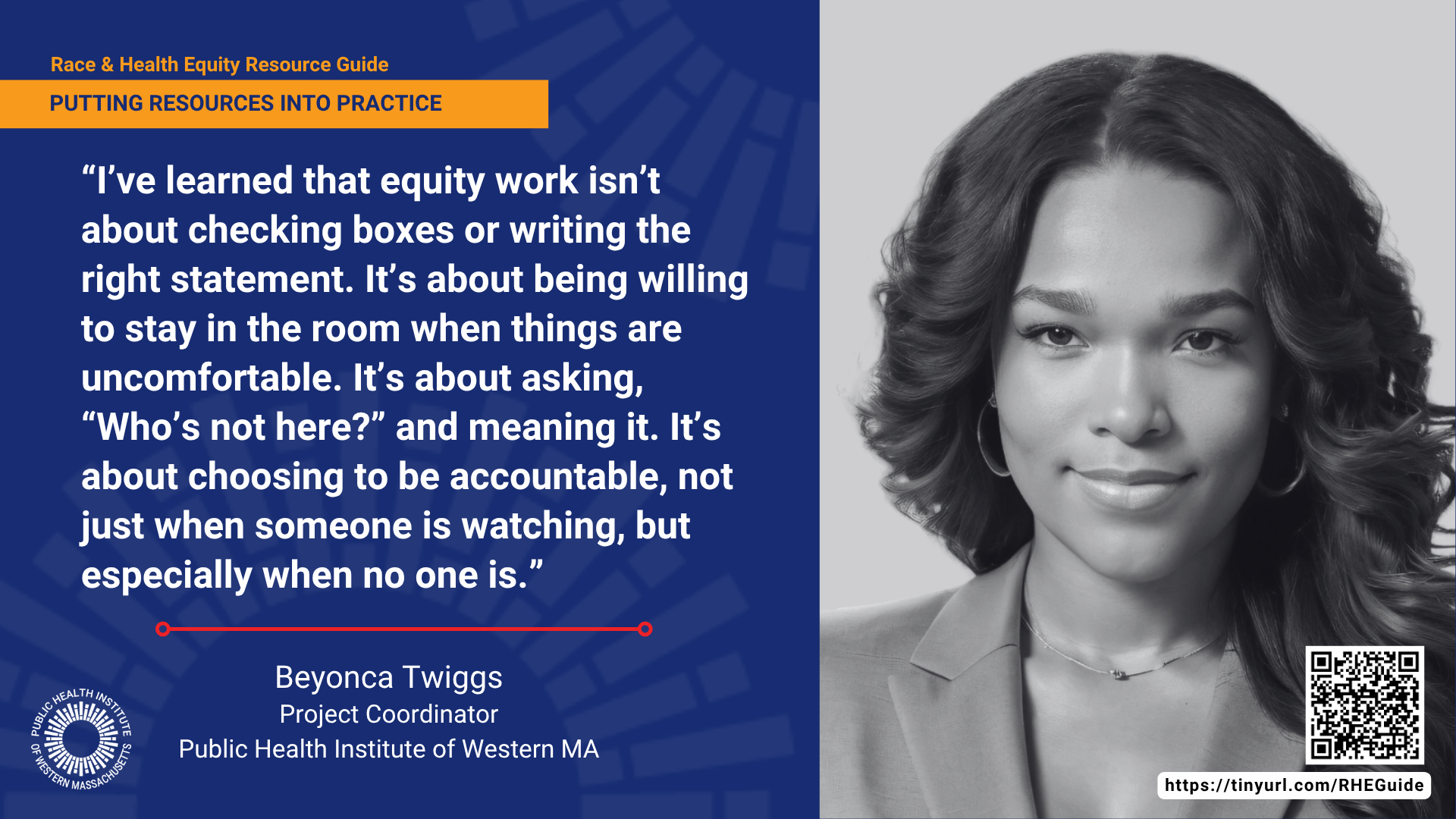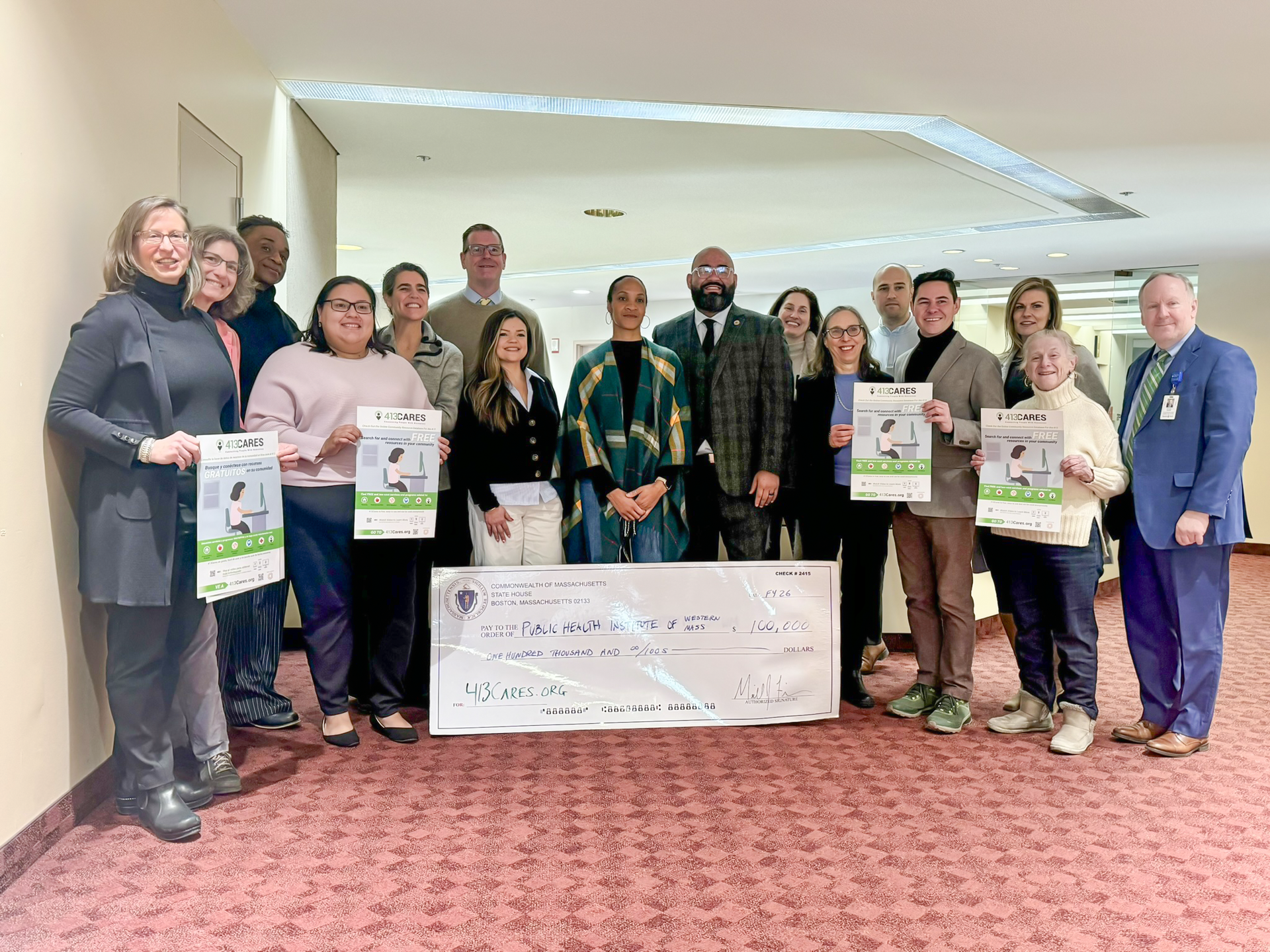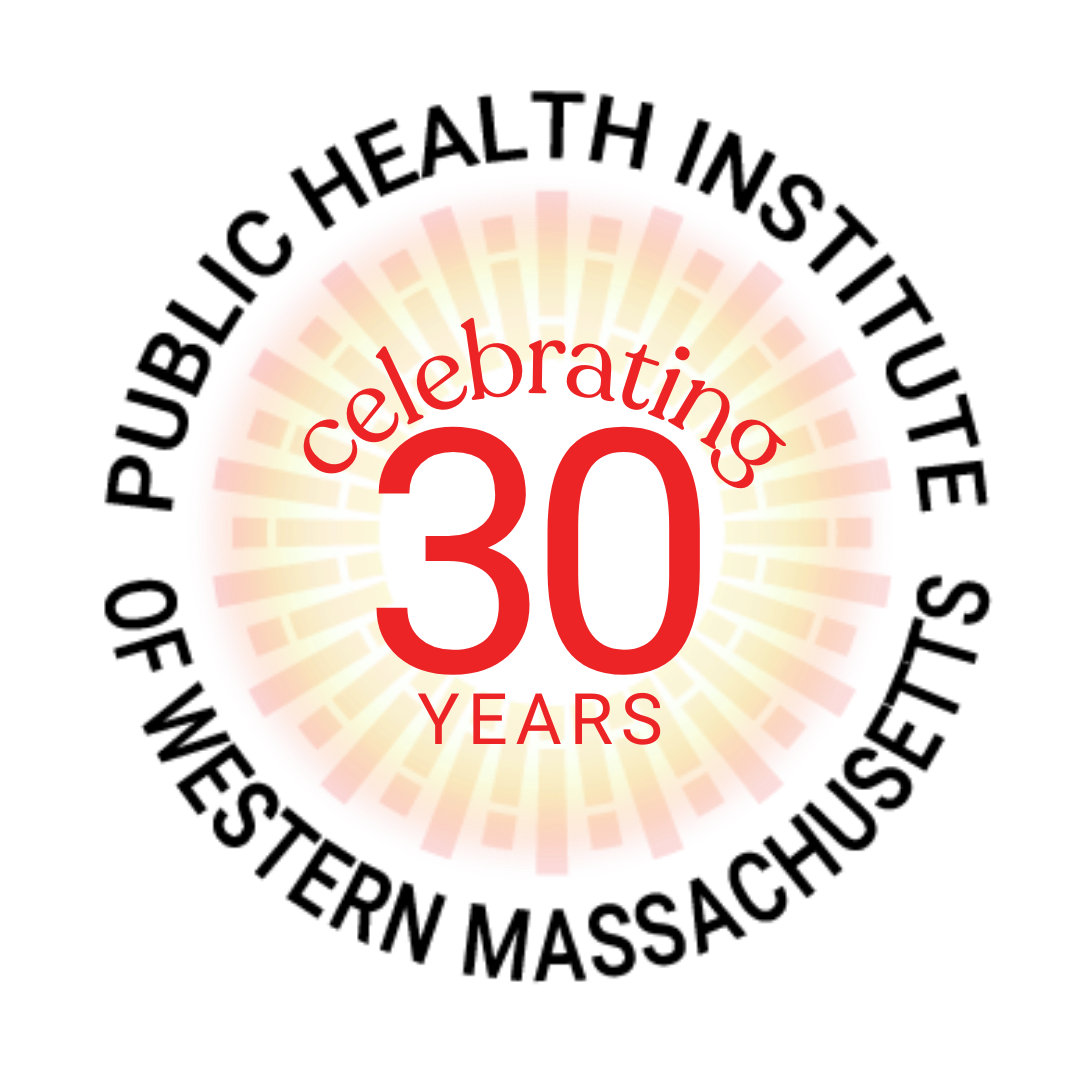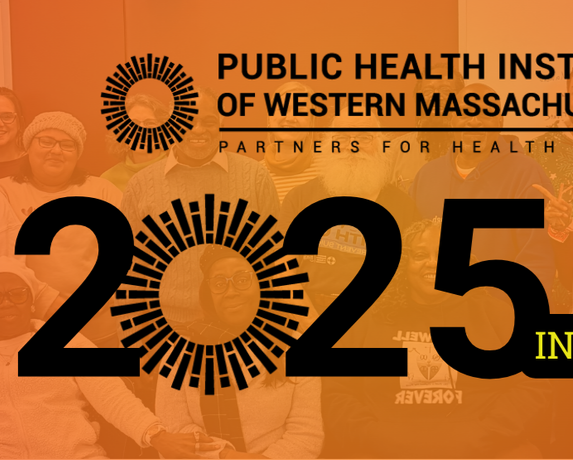Showing Up When It’s Hard

Beyonca Twiggs is a Project Coordinator at the Public Health Institute of Western Massachusetts. Read her reflection below about engaging in equity work and showing up even when it is hard.
Showing Up When It's Hard
There are days when the work feels heavy. Not just the tasks or the meetings, but the weight of what we’re trying to change. Systems that were never built for everyone. Patterns that repeat across generations. Stories that aren’t told, because they’ve been ignored for so long.
On those days, I remind myself why I’m here.
I didn’t get into this work because I had all the answers. I got into it because I kept seeing the same harm, the same gaps, the same silence, especially around race and health. And I wanted to be part of interrupting that silence.
I’ve learned that equity work isn’t about checking boxes or writing the right statement. It’s about being willing to stay in the room when things are uncomfortable. It’s about asking, “Who’s not here?” and meaning it. It’s about choosing to be accountable, not just when someone is watching, but especially when no one is.
It means listening even when the truth stings. It means making space for stories that challenge how we see the world and how we see ourselves.
Sometimes, it’s slow. Sometimes, it’s painful. But every time we choose to show up differently— more aware, more honest, more intentional—something shifts. And over time, those shifts start to matter.
I’ve also learned that change doesn’t always look like a policy passed or a report released. Sometimes, it looks like someone feeling seen for the first time. Sometimes, it’s a door that wasn’t open before. Sometimes, it’s just staying committed when it would be easier to walk away.
I am doing this work because I believe in the possibility of something better, and not just in theory, but in practice. In neighborhoods. In classrooms. In clinics. In the everyday places where people deserve to be safe, to be well, and to be valued.
This isn’t just professional for me. It’s personal. Because the stakes are real. Because our communities deserve more than survival. They deserve care. They deserve joy. They deserve justice.
So no, I don’t have all the answers. But I’m here. I’m learning. I’m listening. And I’m staying. Because the work is worth it. And so are the people we do it for.
If you’re looking for ways to deepen your understanding, continue learning, or spend more time with the stories and voices that shape this work, I encourage you to explore the
Race and Health Equity Resource Guide. It offers tools, reflections, and local resources to support ongoing growth.
share this
Related Articles




